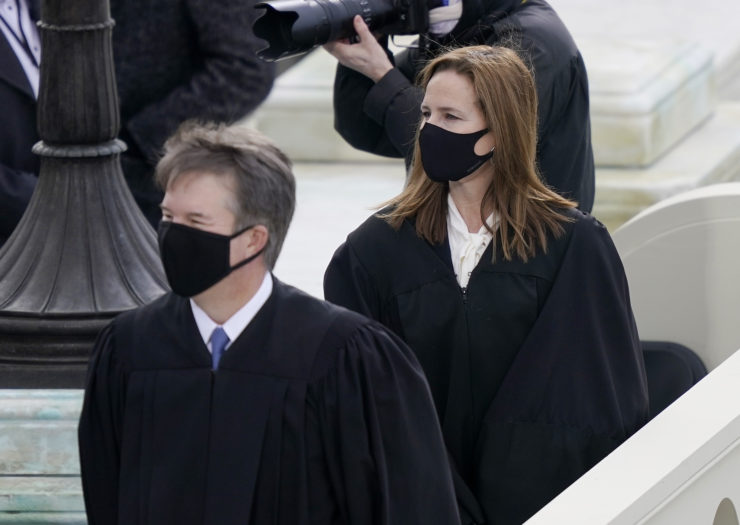The Koney and Kavanaugh Kourt

We refer to courts by their Chief Justice as shorthand, and because from Taney to Rehnquist with some lags the Supreme Court has generally been aligned with a dominant national coalition it has worked well enough. But the Court is actually controlled by its median vote(s), which needless to say means that as of now John Roberts is chief of nothing:
Chief Justice Roberts voted with Justices Breyer, Sotomayor and Kagan in dissenting from six previous shadow docket rulings. But the Clean Water Act dispute was the first time he joined in the procedural criticism that the other conservatives were not just using the shadow docket but abusing it. In that respect, his rebuke cannot be dismissed as partisan. By publicly endorsing the charge that the conservative justices are short-circuiting ordinary procedures to reach their desired results without sufficient explanation, Chief Justice Roberts provided a powerful counter to defenders of the court’s behavior. Justice Samuel Alito, for instance, claimed in a September 2021 speech that critics of these rulings are acting in bad faith because their real objections are to the results in these cases.
What is especially telling about Chief Justice Roberts’s dissents in these shadow docket cases is that, unlike Justices Breyer, Sotomayor and Kagan, he’s often been sympathetic to the results. In February’s Alabama redistricting ruling, for instance, Chief Justice Roberts agreed that the court should reconsider the interpretation of the Voting Rights Act under which Alabama’s maps had been struck down; he just believed that any change in that interpretation had to come through the merits docket, not the shadow docket.
At least on the shadow docket, though that’s no longer up to him. Instead, the court’s destiny increasingly appears to be controlled by Justices Brett Kavanaugh and Amy Coney Barrett. She implored an audience at the Ronald Reagan Presidential Library just last week to “read the opinion” before jumping to any conclusions about whether the justices are acting more like politicians than judges. Two days later, she joined the majority’s unsigned, unexplained order in the Clean Water Act case, in which there was no opinion to read. Justice Kavanaugh, too, seems more troubled by criticism of the court’s behavior than by the behavior itself, going out of his way in February’s Alabama redistricting cases to criticize the “catchy but worn-out rhetoric about the ‘shadow docket’” in Justice Kagan’s dissent.
And this is where the compounding anti-majoritarian features of American constitutionalism all favoring the Republican Party are so crucial. Judicial power is always fragile, in the sense that in a genuine clash of power between the judiciary and the other branches the judiciary will lose. But Republicans will have enough power to stop any meaningful retaliation against the Court for at least the medium term, and it’s clear from how they’re behaving that they know it. Things are going to be so much worse than elites still in thrall to the Cult of the Court have figured out.


